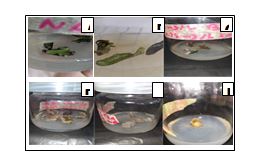Effect of Growth Regulators on Callus Formation and Alkaloids Production on Vinca Rosea Plant (Catharanthus Roseus L.)
Journal of Medical Practice and Review
,Volume
2022
,
Page 788-791
Abstract
Vinca alkaloids are a subset of drugs obtained from the periwinkle plant they are naturally extracted from the pink periwinkle plant (Catharanthus roseus), and they have been used to treat diabetes, high blood pressure and have been used as disinfectant. The vinca alkaloids are also important for being Cancer resistant there are four major vinca alkaloids in clinical use: Vinblastine (VBL), vinorelbine (VRL), vincristine (VCR) and vindesine (VDS). Vinca alkaloids are the second most used class of cancer drugs and will stay among the original cancer therapies. Catharanthus roseus is still source used for the powerful antitumor drugs. Callus culture had been done on MS-medium containing Different Concentrations from BA – 2,4-D – NAA – IAA. Where the different effects of growth regulators were studied when different parts of the plant have been cultured from leaves and stems this is to induce callus formation and encourage growth and the concentrations that were prepared: BA (0,1 – 0,3 – 1 – 2 mg/l) - NAA (0,1 – 1 mg/l) - IAA (0,1 mg/l) - 2,4-D (0,75 – 1 mg/l). And after culture the explants we transferred it to the growth room with a temperature ranging from 27 to 29 ° C relative humidity around 80% And in complete darkness. The results from HPLC analysis for the dry weight of callus were as follows ajmalicine (0.18 mg/g DW), catharanthine (0.07 mg/g DW), serpentine (0.37mg/g DW), vindoline (0.11 mg/g DW).
- Alkaloids, Catharanthus roseus, growth regulators High Performance Liquid Chromatography (HPLC), Fluorescence, UV

How to Cite
Download Citation
References
- Article Viewed: 391 Total Download

